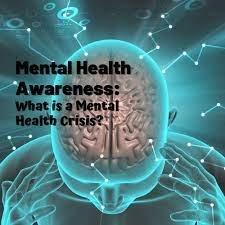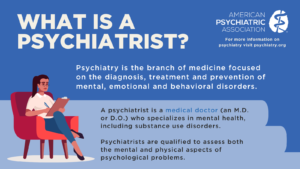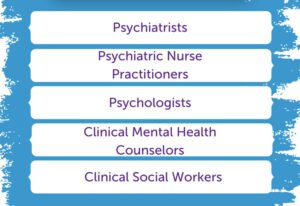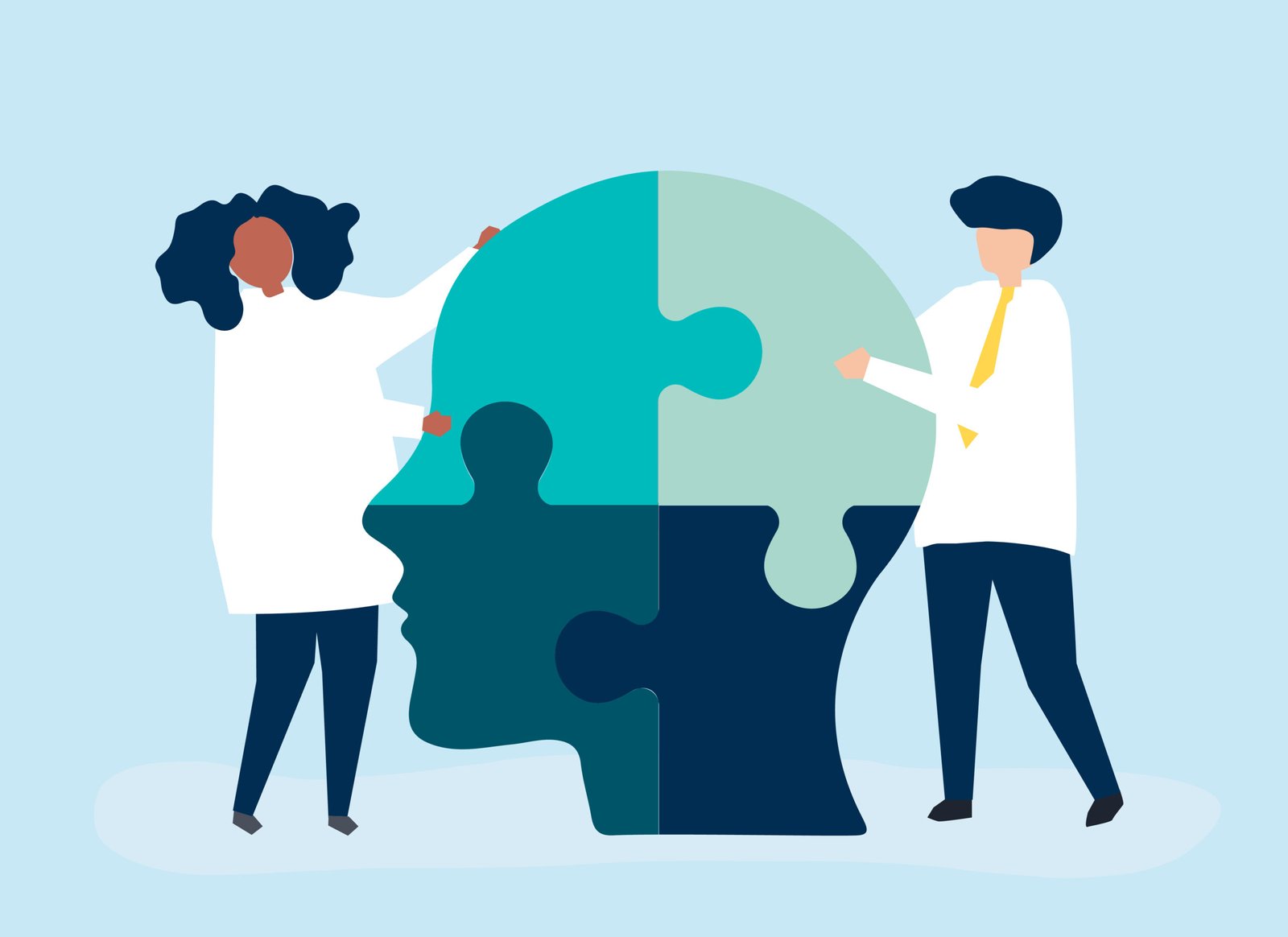
Introduction
In the present quick-moving and stress-ridden world, emotional well-being has turned into an unmistakable concern. The significance of mental prosperity couldn’t possibly be more significant, and emotional wellness clinicians assume a vital role in tending to these worries. This article digs into the universe of psychological wellness clinicians, investigating their pivotal capabilities, obligations, and the effect they have on people and society in general.
The Mental Health Crisis

The-Mental-Health-Crisis
The 21st century has seen a developing psychological well-being emergency that influences individuals of any age, foundations, and different backgrounds. Factors like expanded cultural tensions, financial difficulties, and the computerized age’s consistent availability have prompted higher rates of pressure, uneasiness, despondency, and different psychological well-being issues. In such an environment, the presence of emotional well-being clinicians has never been more significant.
Who Are Mental Health Clinicians?
Psychological well-being clinicians envelop a wide range of experts, each with an exceptional job in the psychological well-being environment. This gathering incorporates specialists, clinical analysts, social laborers, mentors, mental attendants, and marriage and family advisors. These people are prepared to give a great many administrations, from treatment and guidance to drug use, all pointed toward working toward mental prosperity.
The Core Functions of Mental Health Clinicians
Emotional wellness clinicians offer a different arrangement of administrations intended to address the special requirements of every person. Here are their core capabilities:
- Assessment and Diagnosis: Psychological well-being clinicians are prepared to assess and analyze different psychological well-being conditions. Through evaluations, meetings, and perceptions, they decide the nature and degree of an individual’s psychological well-being issues.
- Treatment and Therapy: When a conclusion is laid out, clinicians foster customized treatment plans. These plans frequently incorporate treatment meetings, guidance, and, now and again, medicine for the executives.
- Support and Guidance: Psychological well-being clinicians offer urgent, profound help and direction to people battling with psychological wellness issues. This help can be groundbreaking for those feeling overwhelmed by their difficulties.
- Prevention and Education: These professionals engage in prevention efforts by educating individuals and communities about mental health. This proactive methodology can assist with lessening the disgrace encompassing emotional wellness issues and advance early intercession..
- Crisis Intervention: Mental health clinicians are often on the front lines during crises, offering immediate assistance to individuals in acute distress. Their expertise can be a lifeline in critical situations.
Psychiatrists: Medication Management and More

Therapists are clinical specialists who have practical experience in the treatment of psychological maladjustments. They are approved to endorse drugs and provide a far-reaching scope of medicines for people with emotional wellness problems. Mental consideration is essential, particularly for individuals who expect prescriptions to deal with their circumstances.
Clinical Psychologists: In-Depth Counseling
Clinical analysts are specialists in mental appraisal and psychotherapy. They use proof-based ways to address different psychological well-being issues. Their job is to help people comprehend and deal with their feelings, considerations, and ways of behaving.
Social Workers: A Holistic Approach

Social laborers center around the social and ecological elements influencing psychological wellness. They offer help and assets to people and families, frequently in testing life circumstances. This all-encompassing methodology thinks about the effect of social determinants on mental prosperity.
Counselors: Guiding Individuals to Recovery
Instructors work with people or gatherings to address an extensive variety of emotional well-being difficulties. Their methodology is much of the time arrangement-centered, assisting clients with creating techniques to adapt to life’s troubles and work on their emotional wellness.
Psychiatric Nurses: Comprehensive Care

Mental medical attendants have practical experience in emotional wellness nursing and are an essential piece of psychological well-being. They give nursing care, medicine, and everyday reassurance to people with psychological well-being issues.
Marriage and Family Therapists:

Strengthening Relationships Marriage and family advisors work with couples and families to determine clashes and further develop connections. Their job is to improve the psychological prosperity of people by cultivating solid relational intricacies.
The Importance of a Multidisciplinary Approach
Psychological well-being clinicians frequently team up with each other, creating a multidisciplinary way to deal with care. This coordinated effort guarantees that people get the most exhaustive help, consolidating different parts of psychological well-being treatment.
The Impact of Mental Health Clinicians on Individuals

The positive effect of emotional well-being clinicians on people couldn’t possibly be more significant. Their presence and care can prompt:
- Improved Quality of Life: People can encounter better personal satisfaction, getting a charge out of more noteworthy mental prosperity and a feeling of command over their lives.
- Enhanced Coping Skills: Through treatment and advice, people gain successful survival methods, permitting them to explore life’s difficulties with strength
- Reduction in Symptoms: Drugs prescribed by specialists can altogether diminish the side effects of psychological wellness issues, giving alleviation and steadiness.
- Stronger Relationships: Marriage and family specialists assume a significant role in further developing relational intricacies and encouraging better connections.
- Preventive Care: Early intervention by emotional wellness clinicians can forestall the acceleration of psychological well-being issues, decreasing the drawn-out influence on people.
The Societal Impact of Mental Health Clinicians Mental health clinicians likewise significantly affect society in general.
- Diminished Shame: By teaching networks about emotional wellness and giving consideration to those out of luck, clinicians assist with decreasing the disgrace related with psychological well-being issues.
- Expanded Efficiency: Further developed mental prosperity converts into more noteworthy efficiency at work and in day to day existence, helping the economy and society all in all.
- More grounded Networks: People group with admittance to emotional wellness care are stronger and fit for tending to cultural difficulties.
- Cost Savings: By addressing mental health issues proactively, mental health clinicians help reduce the long-term financial burden on healthcare systems and communities.
Conclusion

Mental health-being clinicians are the unrecognized yet truly great individuals within recent memory, working eagerly to further develop the prosperity of people and society. Their different abilities, commitment, and empathy have a significant effect on the existence of those they serve. By perceiving the significance of psychological wellness clinicians, we move toward cultivating a better and more humane world.
Description:
Explore the pivotal role of mental health clinicians in providing essential care and support for individuals facing mental health challenges. Learn how these professionals help improve mental well-being and foster a healthier society.


4 thoughts on “The Vital Role of Mental Health Clinicians in Supporting Well-Being”